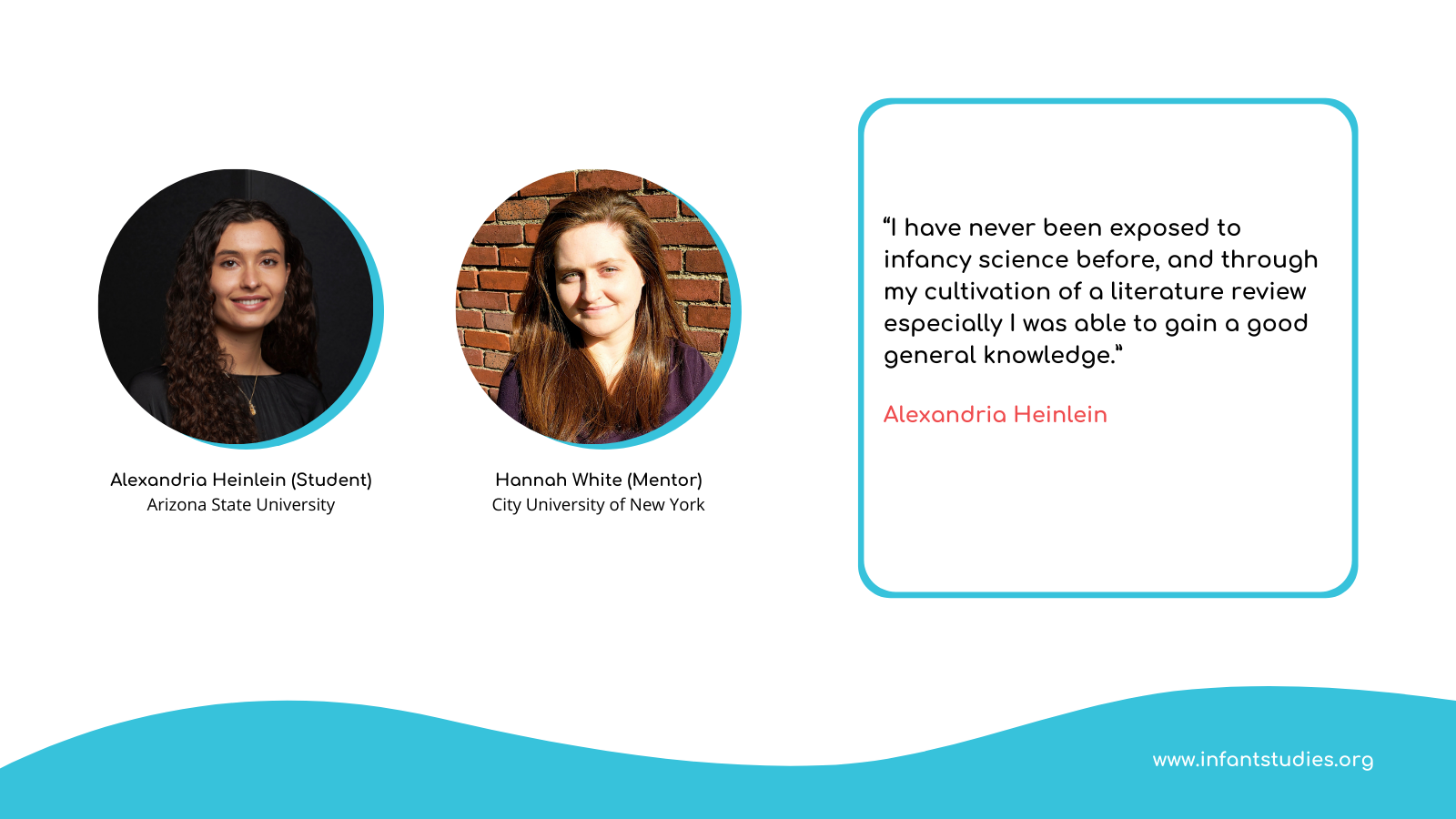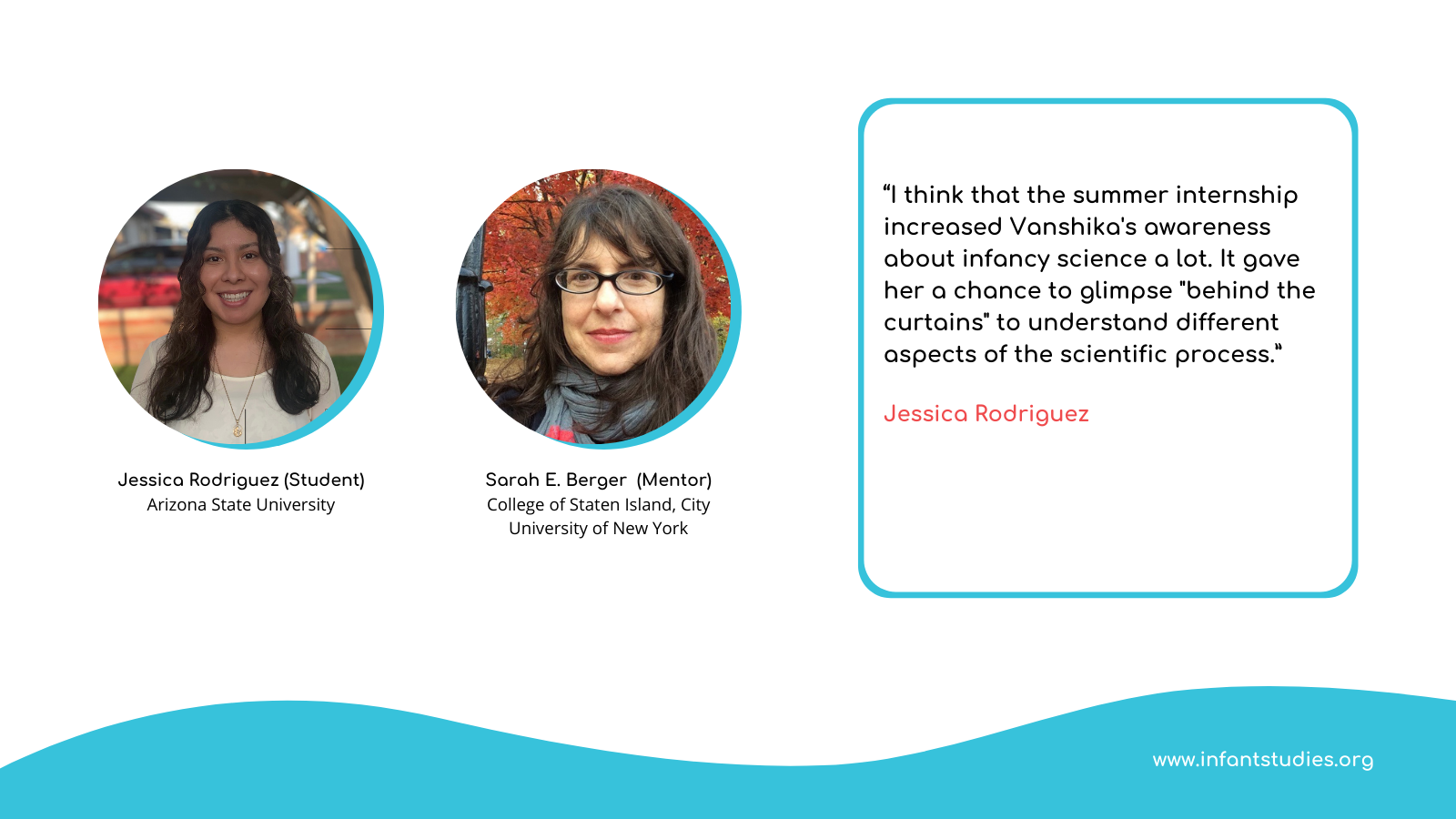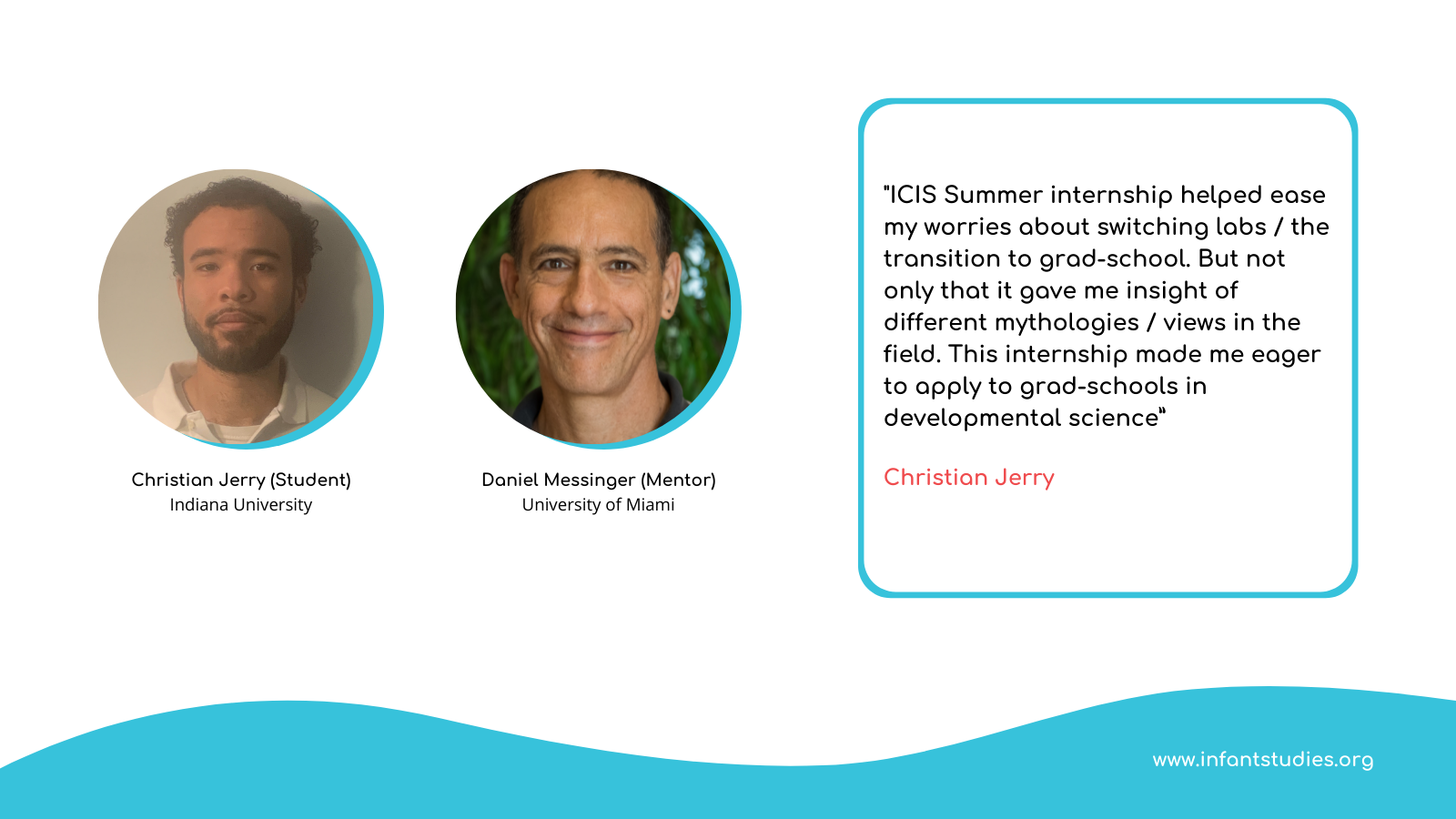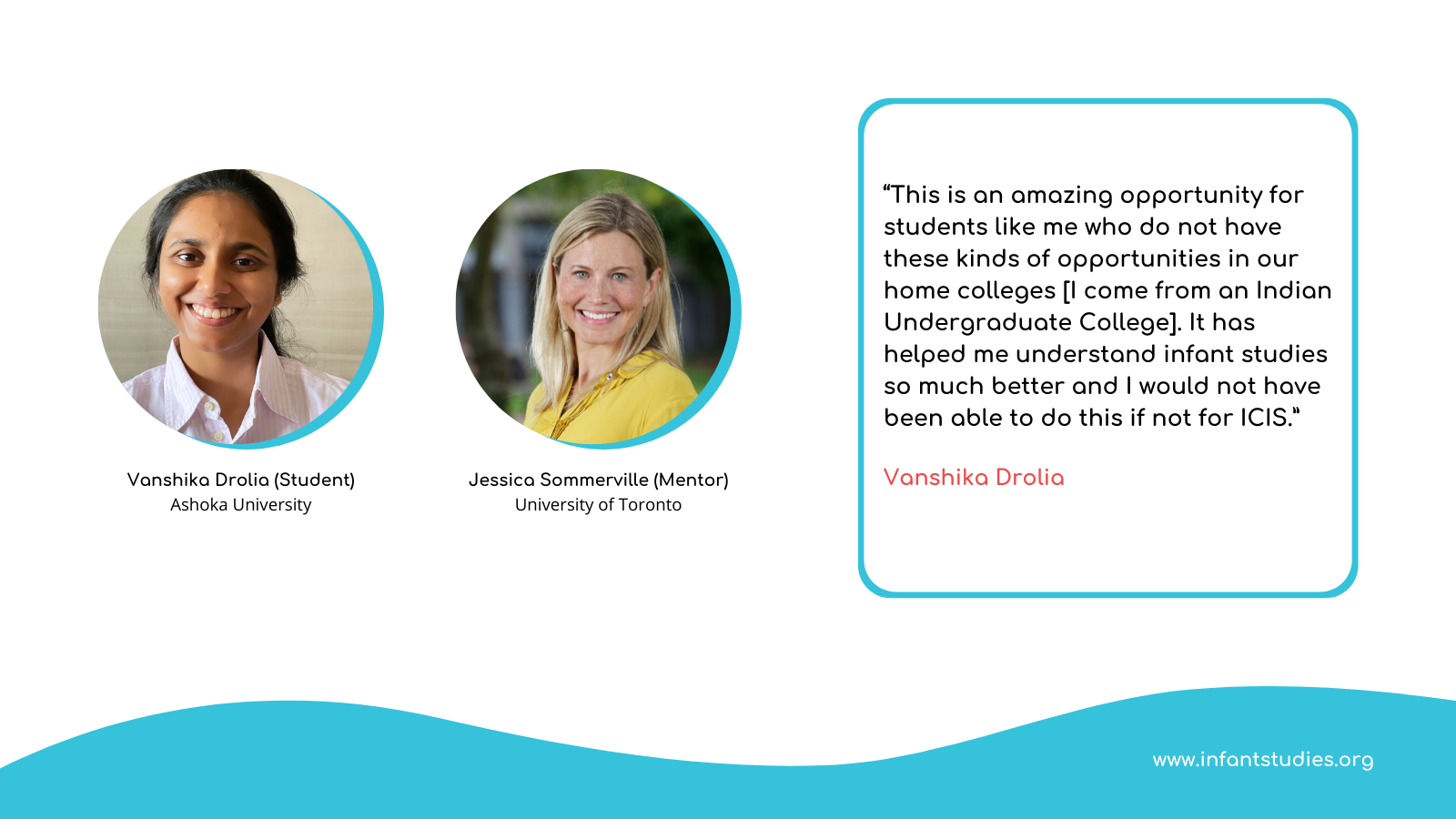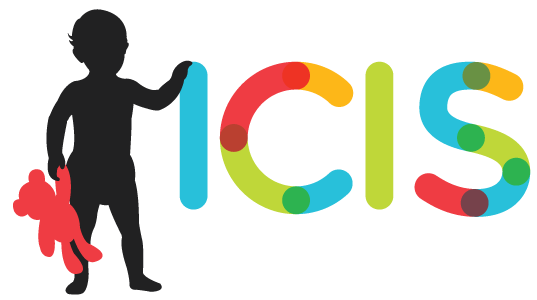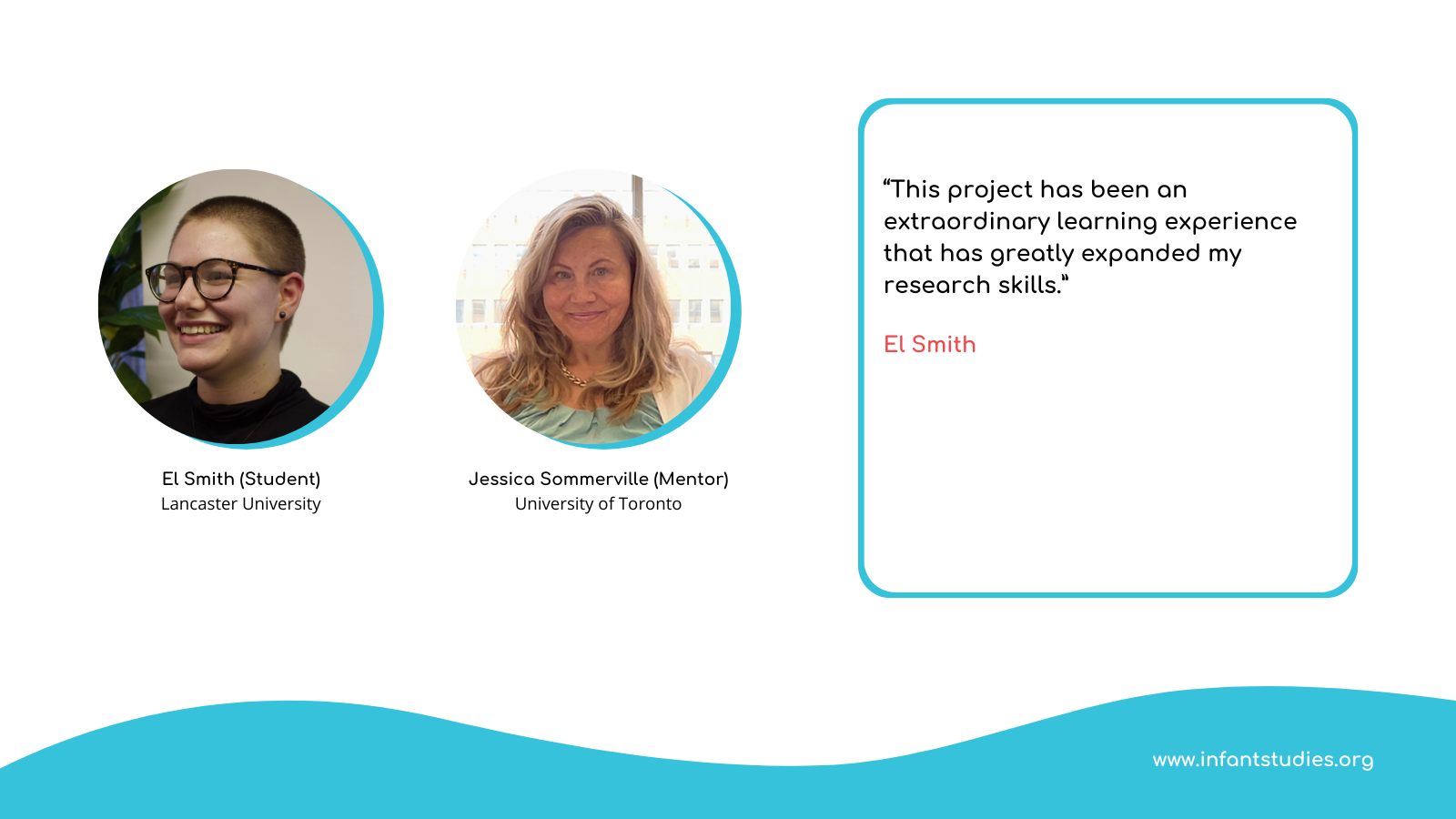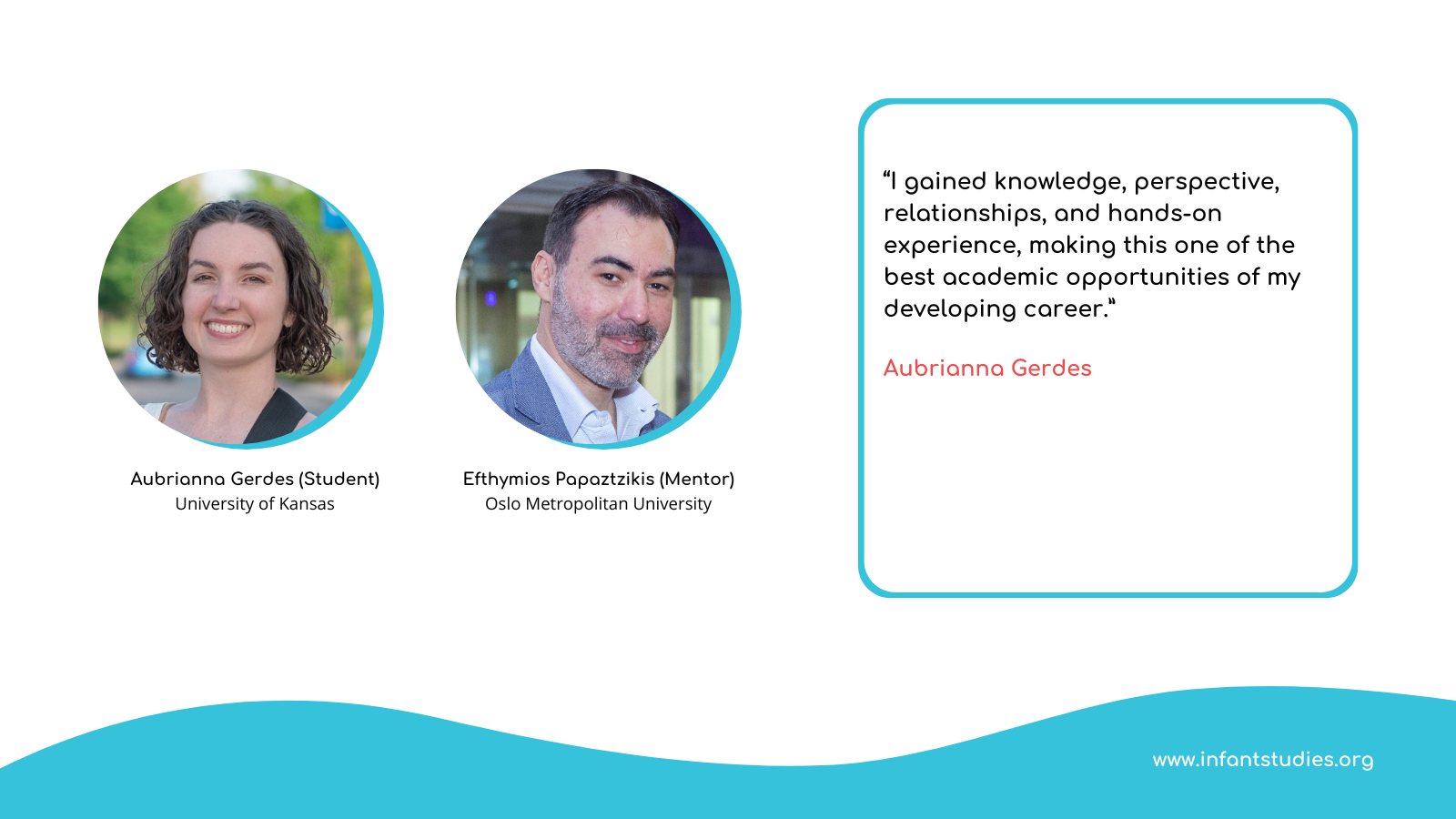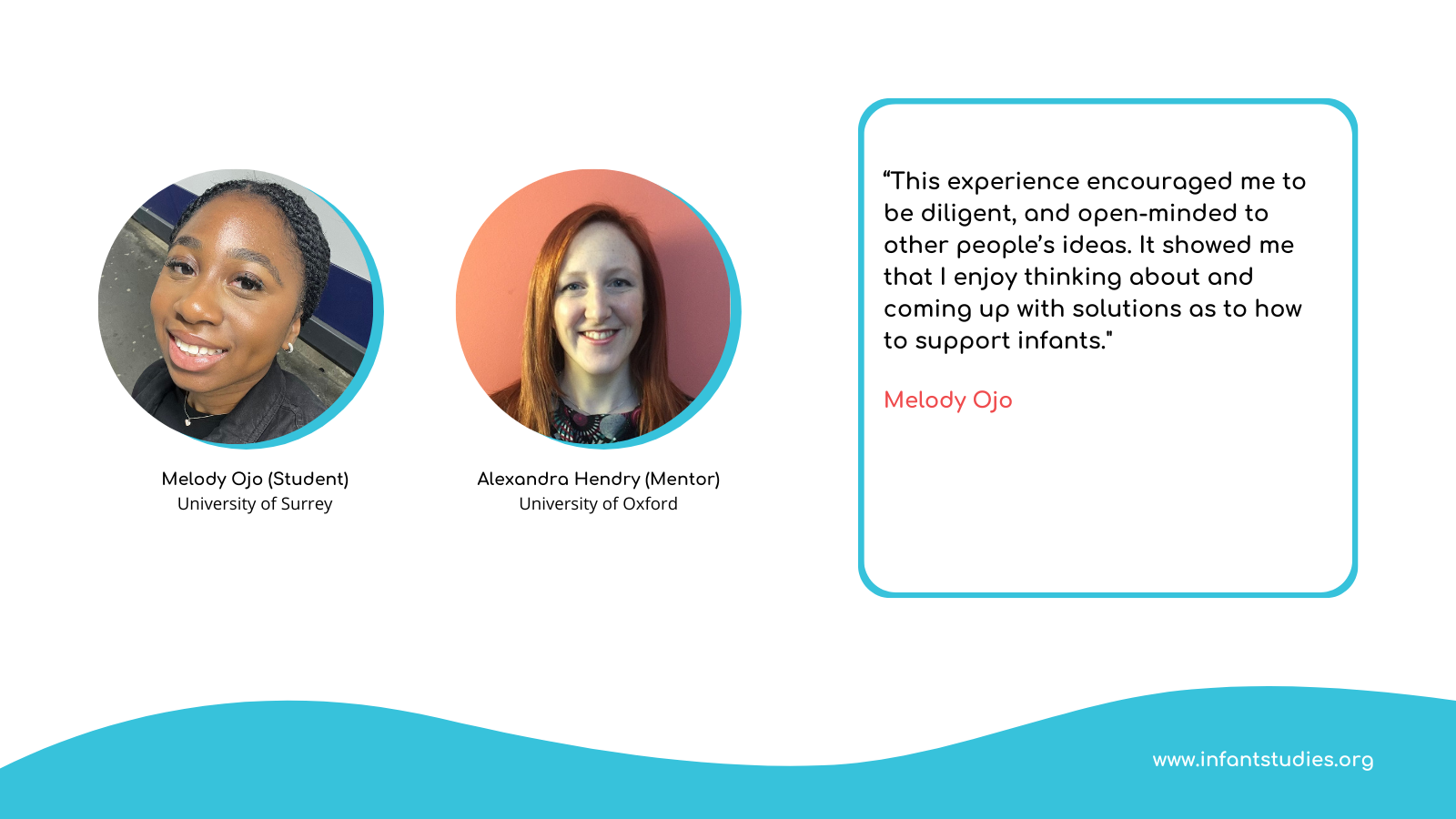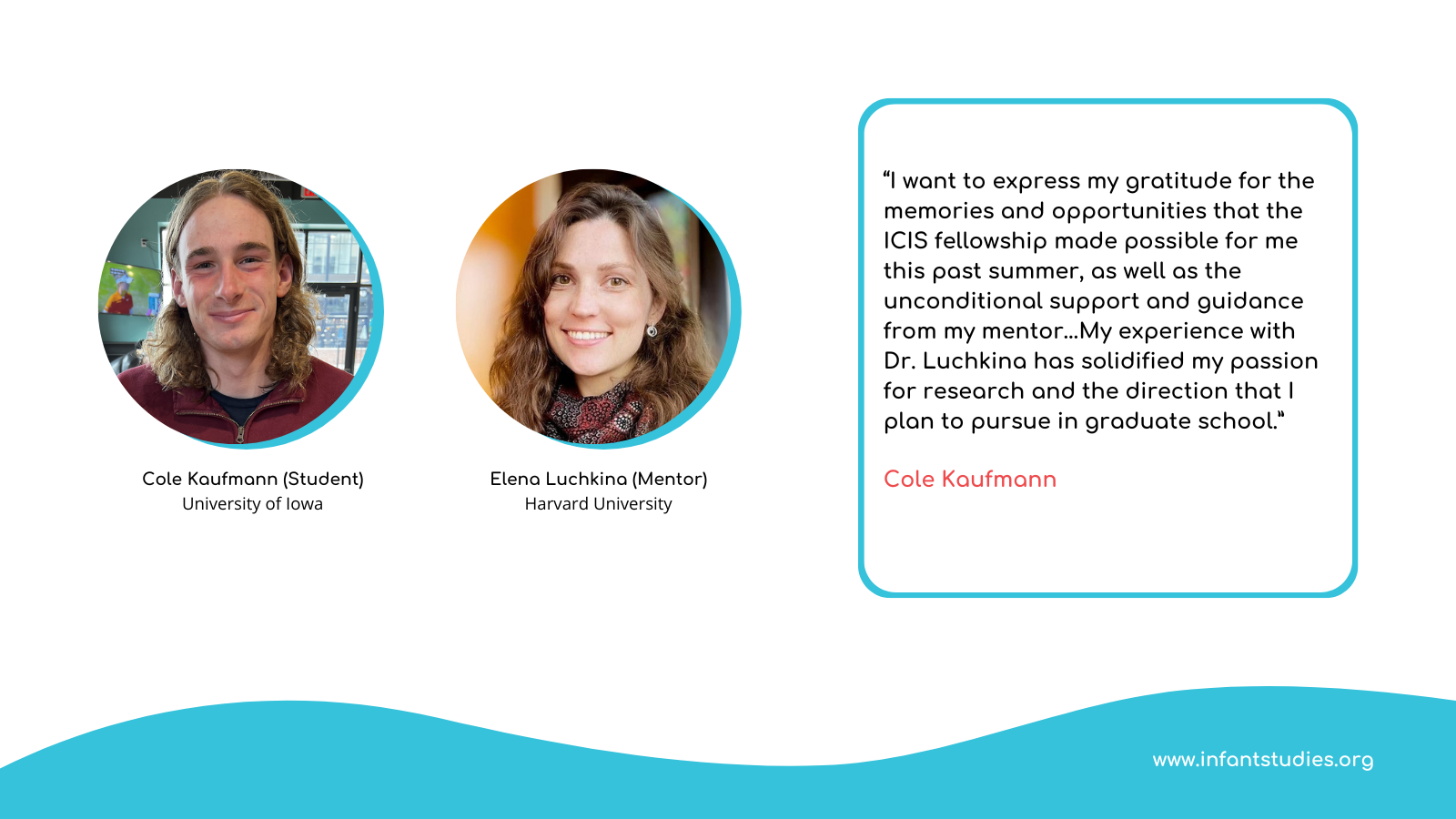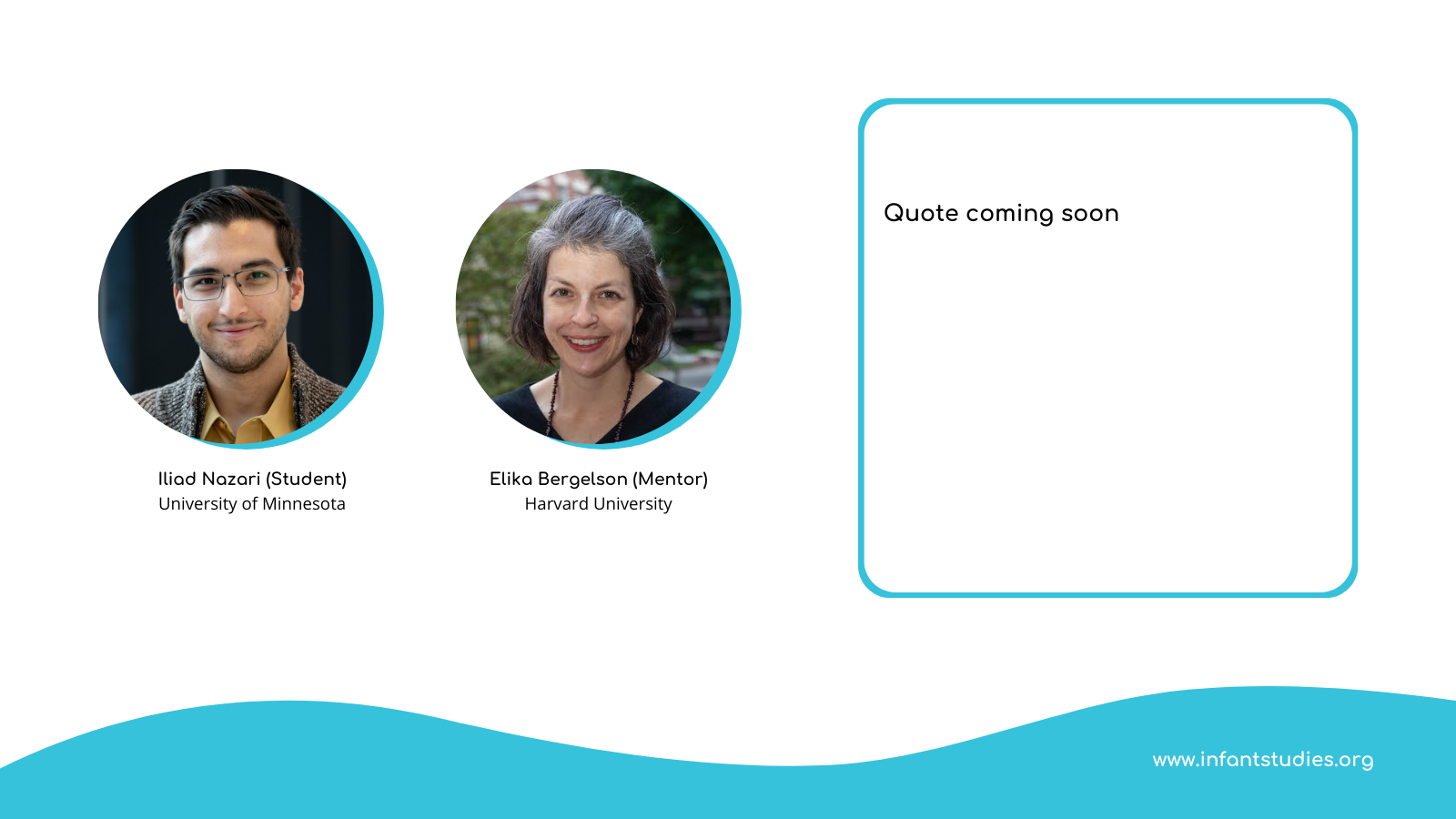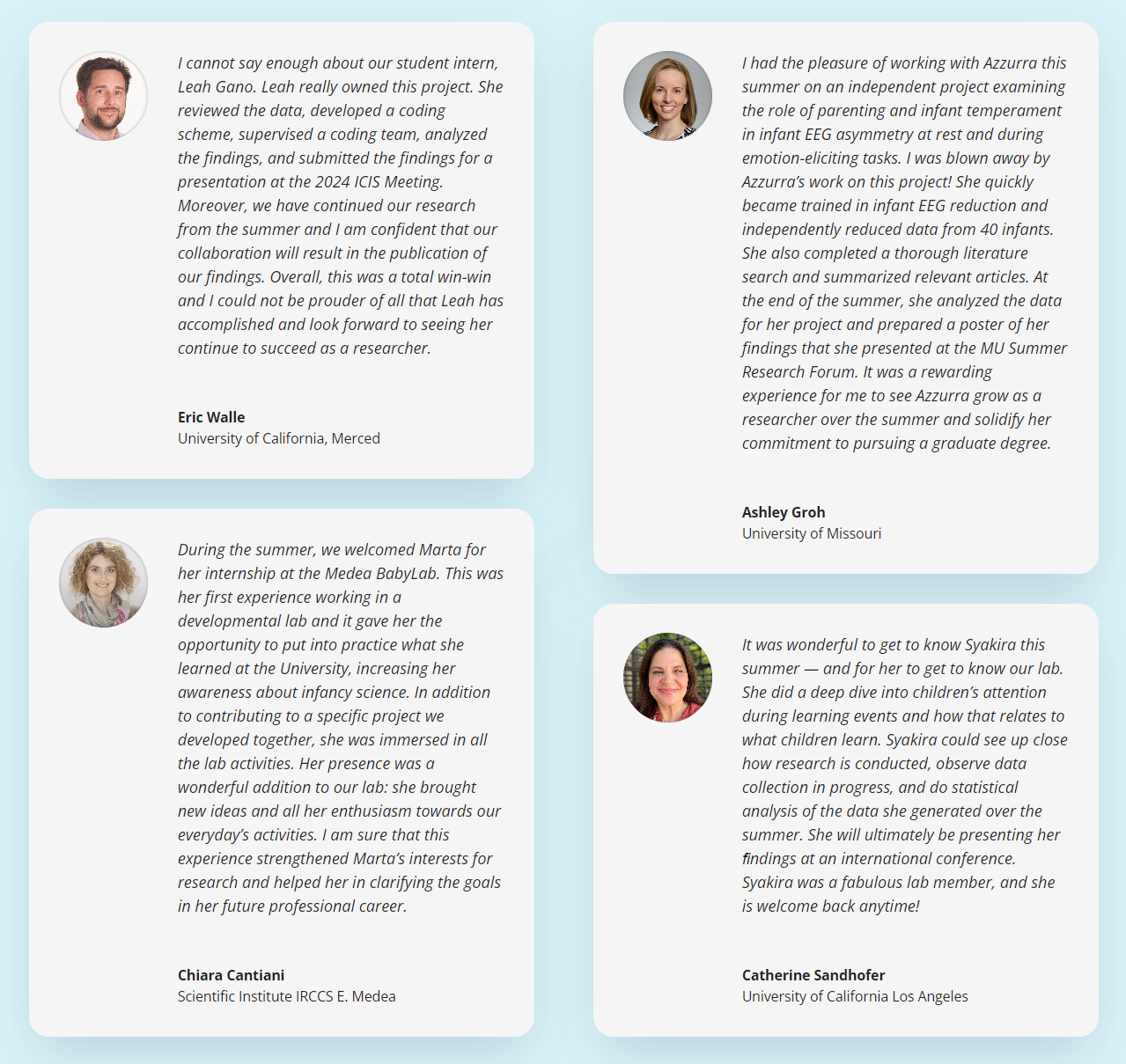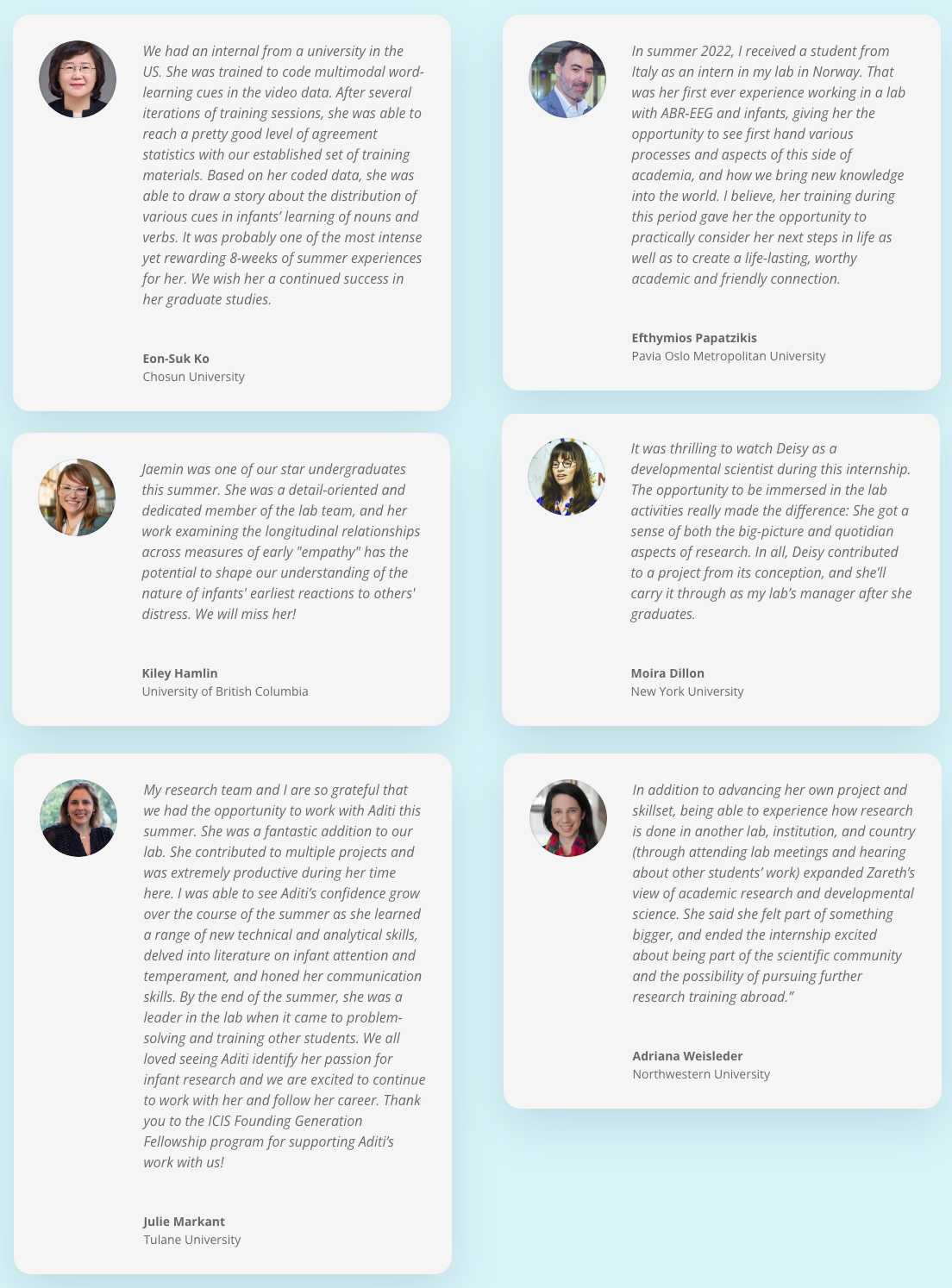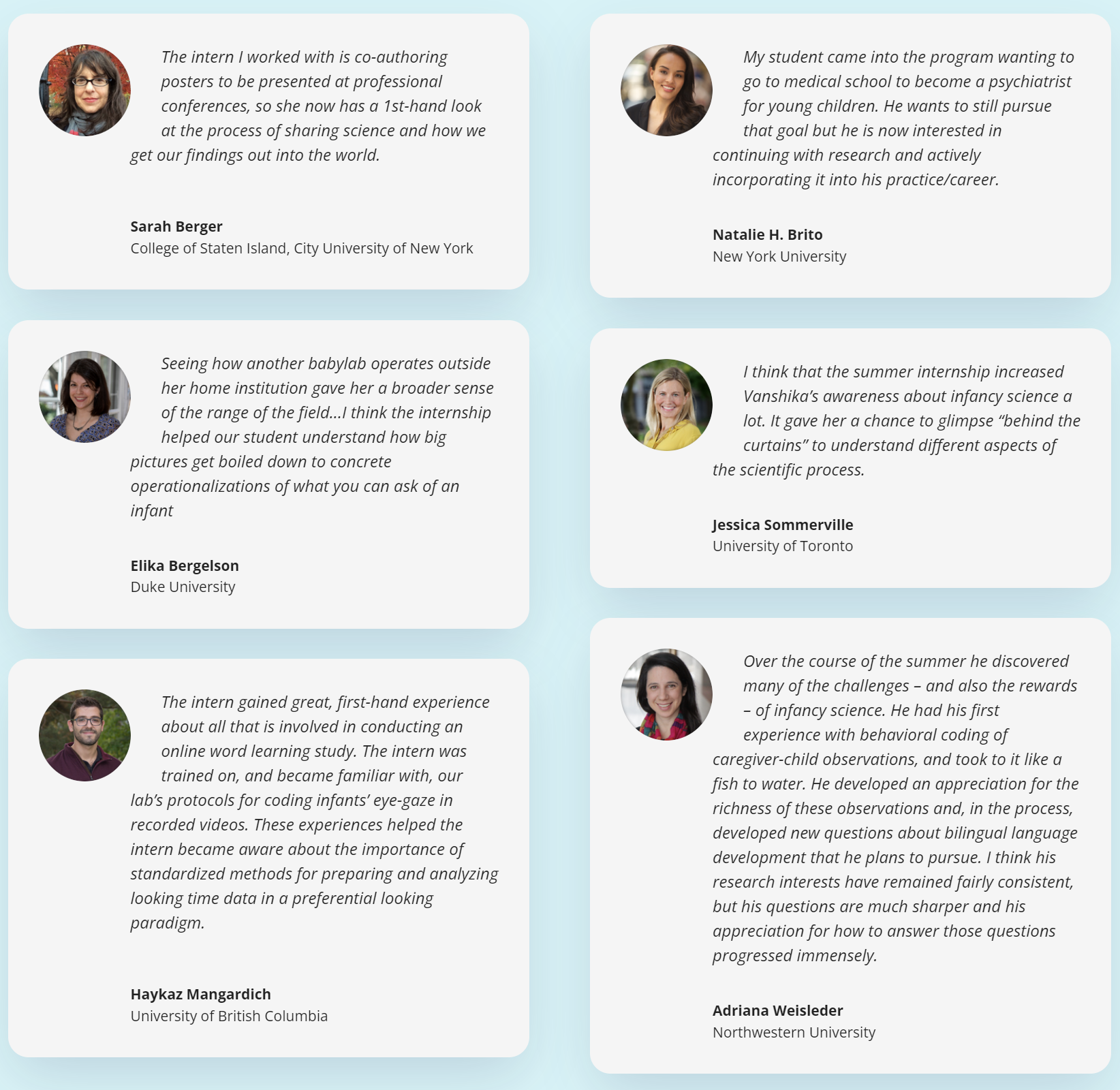ICIS Founding Generation Summer
Fellowship for Undergraduates
Supporting the next generation of infant studies scholars
A core goal of ICIS is to mentor future leaders of the field of infancy. The Founding Generation Summer Fellowship for Undergraduates aims to develop the next generation of scholars to advance innovative research on infancy and translation of research for the public good.
The field of infant research is critical to understanding human development and the application of research findings to education, health, and policy worldwide. This kind of research and outreach requires the participation of individuals from a wide range of backgrounds. Unfortunately, that breadth of representation is lacking.
To address the urgent need of broadening the representation of students, ICIS has created paid summer fellowships. We encourage all interested students to apply, especially those from under-represented and under-resourced backgrounds, as well as any students who are in the first generation of their family to attend college.
The program pairs promising students with researchers from around the world who conduct cutting-edge science. Identified mentors will work with students over an intensive 8-week period. Students receive financial support (up to US$4,000) to enable them to meet with mentors, participate in lab meetings, work with staff, doctoral students and postdoctoral fellows , and build critical skills through hands-on training in research methods. Mentors may also choose to support a portion of the $4000 stipend for the support of a student. Upon completion of the fellowship, students present their work at a dedicated virtual symposium, and are encouraged to submit their work at the 2026 Congress (they may apply for travel support).
Recognizing the Founding Generation
This initiative builds on prior ICIS programs, recognizes ICIS forebears, and honors the contributions of key figures in the Congress’s establishment. The brief history of ICIS (below) describes the individuals who inspired the creation of the Founding Generation program.
Read more...
The Founding Generation Summer Internship Program was established to recognize the contributions of past scholars of infancy studies by supporting the next generation of researchers in infancy. The origins of ICIS, which was known as ISIS (International Society on Infant Studies) from its inception until 2015, can be traced to an informal, interdisciplinary group of 30-50 researchers (the Correspondents on Research on Infants or CRI) that included Psychologists, Pediatricians, Psychiatrists, and Neurologists. CRI members—representing nearly all the major infancy researchers at the time—began to meet in the early 1960s to share their work on infant development. A sub-group of CRIers met monthly in New York and New Jersey, including Marc H. Bornstein, Nathan Fox, Judy Gardner, Bernie Karmel, Michael Lewis, David Lewkowicz, William Fifer, Susan Rose, Holly Ruff, and Gerry Turkewitz. Others who often often visited the group included Joe Fagan, Robert Fantz, Marshall Haith, Bill Kessen, Marian Sigman, and Daniel Stern.
At the time, advances in medicine and increased numbers of premature and sick infants surviving pregnancy and childbirth led to an explosion of infant research. The rapid expansion in infant research highlighted the need to establish an independent venue for CRI members to share their theoretical work and empirical research.
As a result, the first International Conference on Infant Development was organized in Providence, Rhode Island in 1978, under the leadership of Lewis Lipsitt. (Notably, Lewis set the stage for ICIS meetings to have an element of fun mixed in with serious science by inviting a professional yo-yo master to teach researchers how to use a yo-yo!) For several years, the larger ICIS conference followed CRI meetings, being held in whichever city served as the designated CRI site. The local CRI researcher served as program chair and made all arrangements (including signing contracts for hotel “rack rates” and determining the location of the conference dinner). The broad appeal of the ICIS conference ensured its success: registration fees consistently exceeded costs, allowing the congress to consistently meet in the off-years of SRCD.
In addition to hosting the first ICIS conference in Providence, Lewis Lipsitt served as founding editor of Infant Behavior and Development (IBAD), which grew further under the vision of Carolyn Rovee-Collier during her 18-year tenure as editor. Lipsitt and Rovee-Collier also founded and co-edited the series Advances in Infancy Research, to which many original CRIers contributed.
Although ICIS members adopted IBAD as their unofficial journal, by the 1990’s the Society wanted a journal that it could independently control. In response, Esther Thelen (President of ICIS at the time), Rachel Keen (President-elect), Nathan Fox, and Marian Sigman negotiated with the assistance of Attorney Jeff Pasek the new journal Infancy with Lawrence Erlbaum in 2000. Leslie Cohen served as the first editor of ICIS’s flagship journal, followed by Richard Aslin, Martha Ann Bell, John Colombo, and Gavin Bremner as current Editor.
Committee Members
Rachel Barr, Georgetown University (Chair)
Martha Arterberry, Colby College
Sarah Berger, The College of Staten Island, CUNY
Elena Luchkina, Harvard University
Efthymios Papatzikis, Oslo Metropolitan University
Samuel Putnam, Bowdoin College
Jessica Summerville, University of Toronto
“In reflecting upon my career and the many intellectual threads that influenced my scholarship, I realized that my primary allegiance has consistently been aligned with ICIS. It is the biennial meeting I always attend, the focus of my research on human development, and the set of colleagues with whom I unequivocally identify. It was natural, therefore, when I was able to make a gift to a scientific organization, that I would direct my gift to ICIS. I hope that others who feel the same way about ICIS as I do will consider adding their support to the Founding Generation Fund so that our discipline remains vibrant and relevant to the next generation of scholars.” – Anonymous Donor
Visit our Application Page
Celebrating an outstanding 2024 cohort
Thoughts from our Students
Thoughts from our Mentors
Quote coming soon
Melody worked across multiple datasets which meant she was able to get insight into several different aspects of developmental research, whilst making meaningful contributions to the project. At the end of each day she shared with me a reflection on a task she had completed or observation she had made and it was wonderful to see these reflections become increasingly insightful across the course of her internship.
It was fun to plan out a specific, tractable project with [Genia], and to have someone so curious, thoughtful, and hardworking spend most of the summer diving into it. We made a ton of progress in taking on a new idea, got to cultivate both theoretical and empirical knowledge, and help scaffold the initial steps of his academic journey in this research topic. Great experience all around!
Mentoring Aubrianna from KU through this fellowship was a deeply rewarding experience. She worked diligently on our research into premature infant brain development, focusing on EEG and singing measurements in the NICU. The fellowship provided her with the chance to gain hands-on experience in a real-world setting, enhancing both her technical skills and critical thinking. I truly believe that this program is crucial in nurturing young scientists, especially those from underrepresented backgrounds, empowering them to contribute meaningfully to infant studies. It fosters diversity, innovation, and a brighter future for research.
It is extremely rewarding to see Cole grow as a scholar and bring his passion for clinical work to the service of connecting basic and applied research on human cognition.
Fellowship Archive
2022 Cohort
Building on the success of the initial cohort, in the summer of 2022, ICIS paired 6 undergraduate students with mentors. Testimonials from mentors and students show that participants greatly valued their experience. Students highlighted many benefits of the program, including learning about developmental science and gaining a deep appreciation and knowledge of a specific area of infant research. The summer fellowships inspired, educated, and enabled students in a variety of ways.
2021 Cohort
In the summer of 2021, ICIS paired 8 undergraduate students with mentors. Testimonials from mentors and students show that participants greatly valued their experience. Students highlighted many benefits of the program, including learning about developmental science, gaining a deep appreciation and knowledge of a specific area of infant research; acquiring skills, research tools and know how in behavioral coding, brain recordings, statistical analyses, and research dissemination.
The summer fellowships inspired, educated, and enabled students in a variety of ways.
Fellows from 2021 reported that the experience gave them a greater awareness of infancy science, with experiences that were both broad and deep: